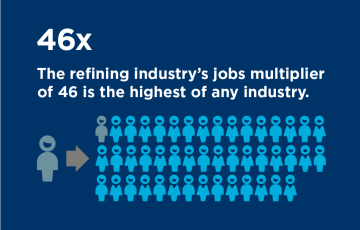A recently released U.S. intelligence report on Russia’s efforts to influence the presidential election cited “clear evidence that the Kremlin is financing and choreographing anti-fracking propaganda in the United States,” according to an op-ed that ran in the latest issue of Newsweek. The intelligence report confirms what numerous investigations have uncovered since at least 2015: The Russian government is concerned "about the impact of fracking and U.S. natural gas production on the global energy market," and they are going to great lengths to disrupt our nation’s natural gas production. Specifically, Russia has directed RT, its state-funded propaganda platform, to air numerous anti-fracking “news” stories and an anti-fracking “documentary” to its U.S. audiences. According to the op-ed, RT ran 62 different anti-fracking TV news reports over a seven-month period in 2015. Worse, Russia is funding a number of anti-fracking activists groups by running millions of dollars through “a Bermuda-based shell corporation with direct ties to Putin and Russian oil interests” to the Sea Change Foundation, which funnels the money to groups like the Natural Resource Defense Council and the Sierra Club. According to a 2015 report by Lachlan Markey, then an investigative reporter at the Heritage Foundation, “The Sierra Club, the Natural Resource Defense Council, Food and Water Watch, the League of Conservation Voters, and the Center for American Progress were among the recipients of Sea Change’s $100 million in grants in 2010 and 2011.” And these contributions very likely came with strings attached, if what happened in Eastern Europe is any indication. According to a 2014 New York Times article headlined “Russian Money Suspected Behind Fracking Protests,” a small village in eastern Romania “became a magnet for activists from across the country opposed to fracking,” after Chevron started exploratory shale gas drilling in the town. According to the Times, even NATO’s secretary general, Anders Fogh Rasmussen, believed Russia was behind the “mysteriously well-financed and well-organized campaign of protest.” “Russia, as part of their sophisticated information and disinformation operations, engaged actively with so-called nongovernmental organizations — environmental organizations working against shale gas — to maintain dependence on imported Russian gas,” Rasmussen said. The Russian connection helps explain why the Sierra Club, which once lauded natural gas as “a bridge fuel” to renewables, just released a report blasting the clean energy as “another filthy fossil fuel.” (Check out this blog post on the topic from the always informative energyindepth.org website.) It also explains why Sierra Club-led activists are now taking their campaign against natural gas to the local community level (à la eastern Romania). According to the latest issue of TIME magazine, “[S]topping natural gas plants would likely require a campaign centered on the local authorities that determine what type of energy to purchase.” Therefore, “More than 200 sites of pending natural gas power plants and thousands of miles of pipelines represent the next frontier in environmental activism focused on halting fossil fuel development, according to a new [Sierra Club] report.” This shift is echoed by increasingly radical rhetoric from their ground troops. Consider Lori Glover, co-chair of the Big Bend (FL) Sierra Club who, speaking about the Trans-Pecos Pipeline, recently said, “It doesn’t even matter whether the pipeline is dangerous or not dangerous or any of that. … If we don’t want it, we don’t want it.” Perhaps the Sierra Club doesn’t think about how the lack of safe, affordable energy would impact low-income families and small businesses. Or perhaps they’re simply being paid not to care.


